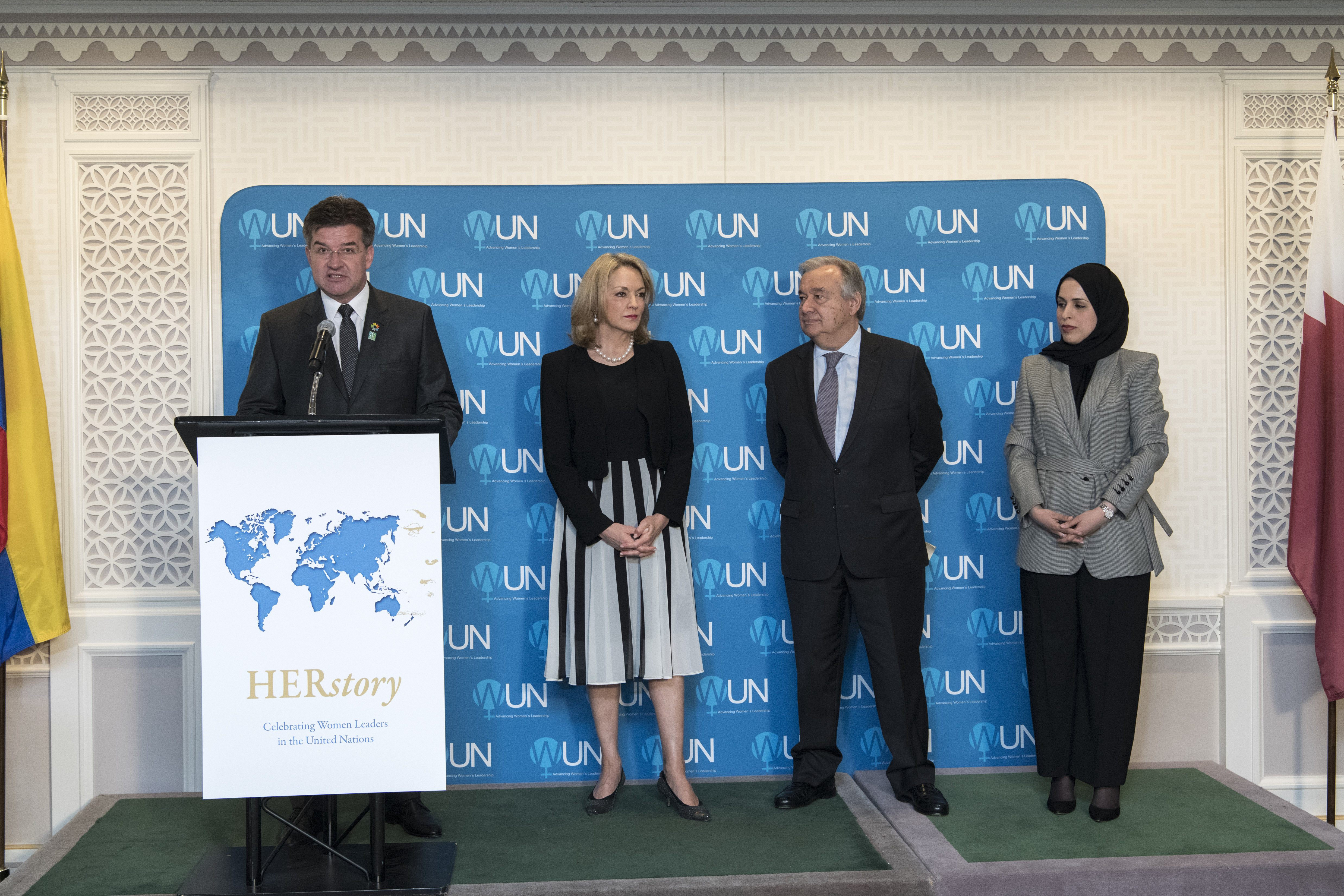Launch of the “HERSTORY” Book

– As delivered –
Statement by H.E. Mr. Miroslav Lajčák, President of the 72nd Session of the UN General Assembly, at Launch of the “HERStory” Book
Thank you very much, good afternoon.
Welcome to the launch of the HERStory book!
Today is a day that will enter the history books.
I want to thank Ambassador María Emma Mejía Vélez and Ambassador Alya Ahmed Saif Al-Thani for their commitment to this initiative.
And I want to use this opportunity to make a few acknowledgments.
First: the United Nations would not be what it is without women.
They were crucial in building this Organisation up, after it was established in 1945.
Let us think about Eleanor Roosevelt, who was so determined to bring the Universal Declaration of Human Rights to life that she often held meetings into the night.
Or Frieda Dalen. After having played a key role in the resistance to Nazi occupation, she came to the United Nations as part of the Norwegian delegation. And she was the first woman to address the General Assembly.
But women have also shaped the recent history of the United Nations.
Look at Silvia Fernandez de Gurmendi, who, in 2015, was elected as the first woman President of the International Criminal Court.
Or Mary Robinson. She became the first woman to serve as United Nations High Commissioner of Human Rights in 1997. And then, some 15 later, she also went on to become the United Nations’ first woman Special Envoy.
So, this is just a snapshot of the incredible achievements which are detailed in the HERStory book.
There is, however, a second truth that we need to face up to.
Not all these achievements got the credit or attention they deserved. A lot of the pioneering work of women was overlooked.
Fortunately, not today.
I believe we have turned a corner. As a society – and as an Organisation.
All around the world, both women and men have been speaking out against sexual harassment and other forms of gender inequality.
And this momentum made its way in here.
Now, for the first time in history, there are as many women senior leaders in the United Nations as men, thanks to the Secretary-General, Antonió Guterres
And, today, we are here to launch a book that shows women in the correct light: as pioneers who worked to build this Organisation from the ground up – and who continue to shape it today.
Today, we are here to launch a book that shows women in the correct light: as pioneers who worked to build this Organisation from the ground up – and who continue to shape it today.
And, there is a third and last thing I want to say. Namely, I want to acknowledge that we, still, have a long way to go.
We are not there yet.
Even bigger efforts are needed.
Including from Member States, in their nominations.
When I hand over my position to my successor, María Fernanda Espinosa Garcés in September, as you know, she will be the fourth woman President of the United Nations General Assembly.
Which means that 68 men were President, but only three women, before me.
And, as I said in front of the full Assembly – and I will repeat it now – this is not a record to be proud of.
I have heard directly from women Ambassadors that there are, still, many challenges that need to be addressed in the day-to-day activities of this Organisation.
And I believe that, today, we have a perfect opportunity to think about how we can do just that.
So, I will stop here.
Thank you once again for being here.
And let us launch this book – and recommit to a gender equal United Nations!